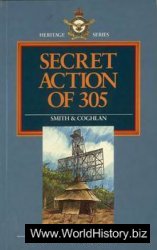The best commentary on the whole of the BG remains Kraner, Dittenberger, and Meusel 1960; Holmes 1911 has extensive treatment of the war narratives and technical points. Hammond 1996 is an excellent translation with helpful introduction and notes. Recent work on the BG, especially in dissertations not yet published, has stretched the boundaries of Caesarian study, and deserves close attention: I single out here Jervis 2001, on the representation of barbarians, with Williams 2001 and Woolf 1998 on Romanization, Barlow 1998 on noble Gauls, and Krebs 2006 on the German ethnography; Erickson 2002 explores Caesar’s creative use of ethnography. Melchior 2004 is a fine treatment of Caesar’s battle descriptions and the representation of wounds; on his battles see especially R. D. Brown 1999 and 2004; for the ideal general see Woodman 1977: 284 (index) and Goldsworthy 1998; for Caesar’s speed see Stadter 1993, and for his use of exploratores Ezov 1996. Finally, Nousek 2004 examines the BG as crafted literary response to Cicero’s De oratore; see also the excellent, detailed treatments of aspects of Caesar’s style and language in Spilman 1932, Eden 1962, Rasmussen 1963, Hall 1998, and Oldsjo 2001. Riggsby 2006 is the most thoughtful recent treatment on the nature of the narrative voice. Pelling 2006 (and elsewhere) discusses Caesar’s boundary-leaping nature, Henderson 1996 his expedience, and Batstone and Damon 2006 his literary formation of character (concentrating on the BC, but relevant for both histories). Specialized treatments of dramatic structures (Rowe 1967), epic conventions (Miniconi 1951) and their role in historiography (Keitel 1987, Rossi 2003), the urbs capta (Paul 1982), and sermo castrensis (Mosci Sassi 1983) are helpful. On broader issues of genre see Barchiesi 2001 and, on historiography in particular, Marincola 2007; for the Roman concept of conquered space see Nicolet 1991; and for exemplarity in Roman thought see Chaplin 2000 and Roller 2004.




 World History
World History



![Road to Huertgen Forest In Hell [Illustrated Edition]](https://www.worldhistory.biz/uploads/posts/2015-05/1432477693_1428700369_00344902_medium.jpeg)





